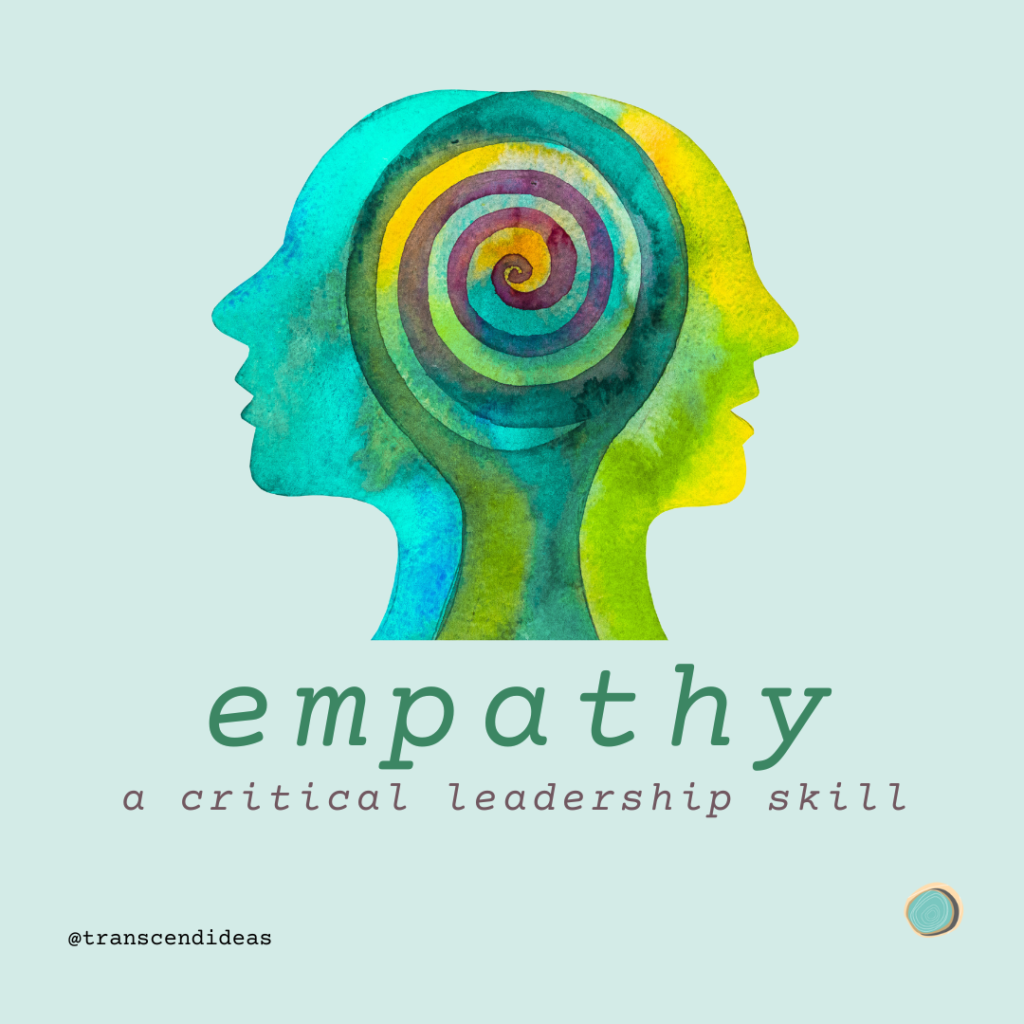
Empathy Is the Most Important Leadership Skill
I knew Empathy was a trait that helped better more relationships in all aspects of life. I’ve seen the difference it makes in mine. When the pandemic hit in 2020-21 I felt disconnection and I needed a periodic check-in with my team. A “how are you?” rather than diving right into work stuff became critical. I personally wanted my colleagues to care about me as I cared for them and their well-being.
Forbes recognizes the positive impact of empathy on innovation and retention. Studies show that empathetic leaders create engaged and productive teams. By considering others’ thoughts and feelings, leaders can connect on a deeper level, foster trust, and inspire empathy in return. This leads to a more compassionate and successful work environment.
“Leaders don’t have to be experts in mental health in order to demonstrate they care and are paying attention. It’s enough to check in, ask questions and take cues from the employee about how much they want to share.”
Forbes article on Leading with Empathy by Tracy Brower, PhD.*
Stress is a pervasive state and data suggests it is an affect by the pandemic and the ways our lives have been turned upside down.*
Empathy by the Numbers
- 42% of people have experienced a decline in mental health
- 67% of people are experiencing increases in stress while 57% have increased anxiety, and 54% are emotionally exhausted, 53% of people are sad, 50% are irritable, 28% are having trouble concentrating, 20% are taking longer to finish tasks, 15% are having trouble thinking and 20% are challenging to juggle their responsibilities
- 61% of employees reported with empathy leaders were able to be innovative, compared to 13% of employees with less empathic leaders
- 76% of people who experienced empathy from their leaders reported they were engaged, compared to 32% who experienced less empathy
- 57% of white women and 62% of women of color said they were unlikely to think of leaving their companies when they felt their life circumstances were respected and valued by their companies
As a leader in the community I know how important it is to engage in empathy. From the receiving end it feels good to be seen and heard. On a Board of Directors we engage in similar behavior with a check-in before we begin to discuss anything on the agenda. If any of us are feeling low or drained, the camera doesn’t need to be on when we meet virtually and if they need to leave early we honor that with understanding and compassion for one another.

Empathy Fosters More Empathy
I’m a cheerleader for empathy marketing. When we engage with our audience in a way that they need and want, you are likely to be more engaged with us.
It’s clear that empathy should be a trait intertwined with leadership. It starts with caring about your team, and your community.
Cognitive empathy – Consider someone elses’ thoughts (“If I were in his/her position, what would I be thinking right now?”)
Emotional empathy – Consider someone elses’ feelings (“Being in his/her position would make me feel ___”)
Empathy is the most important leadership skill because it enables leaders to connect with their team members on a deeper level. Strong leaders understand and share the feelings and perspectives of their employees. They can make more informed decisions and create a supportive work environment. By demonstrating empathy, leaders foster trust, enhance collaboration, and inspire loyalty among their team. Ultimately, this drives higher levels of productivity and success.
Empathy fosters more empathy.
